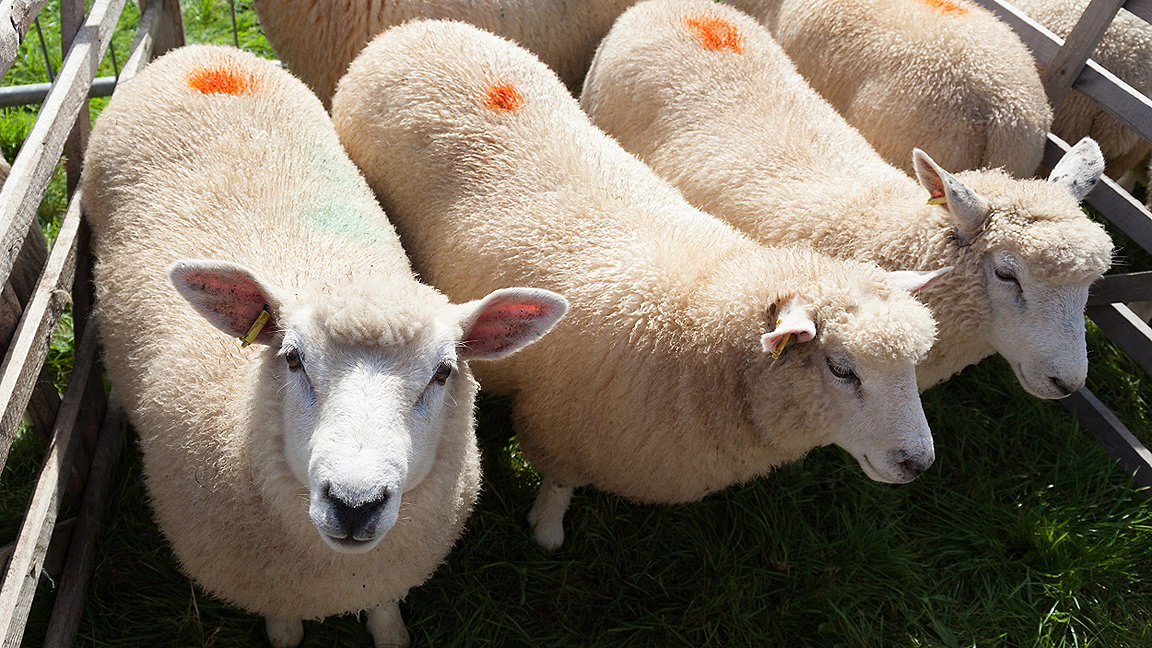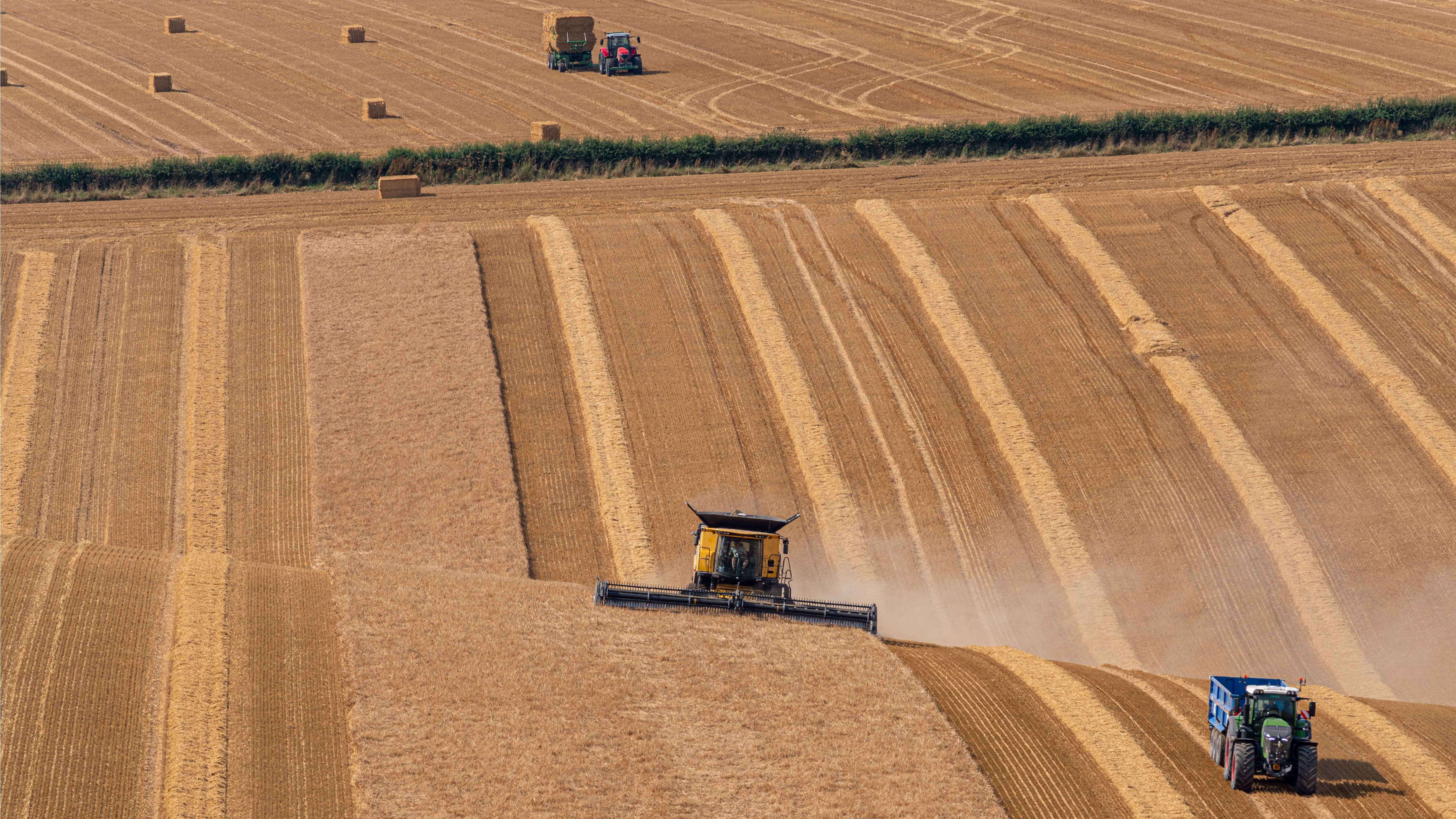
Agriculture in England is going through the biggest change in a generation. This is an exciting time, and it is important we get it right.
The Department for Environment, Food and Rural Affairs (DEFRA) is phasing out the EU's land-based subsidies and introducing new schemes that are designed to work for farmers' businesses, food production and the environment.
Schemes established to support sustainable food
Food production is the primary purpose of farming. DEFRA is committed to maintain food security in the UK, and our policies and schemes are intended to work in a sustainable way alongside farmers to support this.
In the long term, sustainable food production will depend on healthy soil, good water quality and abundant pollinators. That is why farming and nature must go hand in hand. Many farmers are already thinking and working in this way. We in government need to get behind them, and help others to get involved by ensuring our policies and schemes work well for farmers' bottom line.
That's why we launched the Sustainable Farming Incentive (SFI) last year, putting soil health front and centre. The SFI provides payments for actions that support food growth and can help improve farm productivity and resilience, while also protecting and improving the environment.
This year in turn, we have committed to make £180m of grants available, which will enable farmers to make changes to improve their productivity and overcome challenges. For instance, the Slurry Infrastructure grant is designed to help livestock farmers make better use of their slurries to meet crop need and cut pollution.
Grants to suit every type of farmer
We are designing our schemes to reflect the range of different farm types, sizes and locations, so the new funding will offer something for everyone.
This year, we increased prices for farmers and landowners across the schemes. Next year, we will add Countryside Stewardship Plus, which will reward farmers for taking coordinated action, working with neighbouring farms and landowners to support climate and nature aims.
We've also just responded to Baroness Rock's review into tenant farming, building on the work we've done with tenants in our tests and trials so far to make our schemes accessible to them.
- We have announced a new Tenant Farming Forum that will improve the way we communicate with the sector and ensure our schemes are as accessible as possible to tenants.
- We will also be launching a call for evidence to examine the need for a tenant farming commissioner in England and our inheritance tax consultation seeks to understand and resolve any barriers tax might be presenting for tenants wanting to engage in our schemes.
- SFI was designed with tenants in mind. Payments will always go to the person doing the action, not the landlord. Tenants do not need landlord consent to take part in the SFI and if they lose management control they won't be penalised.
- We have introduced a £20 per hectare management payment to help smaller farms cover administrative costs when applying for the scheme.
For common land, we are also including an extra payment to help cover the administration costs of sorting out an agreement between multiple people. Meanwhile, we have recently confirmed changes, responding to farmer feedback, to make sure that upland farmers get paid fairly and can better access our schemes.
That is why we are:
- making payment rates in environmental land management schemes equal for both upland and lowland farms where they are carrying out the same actions. This means increased rates for upland farmers in four Countryside Stewardship (CS) options.
- reviewing and amending a further seven CS options to make them more accessible to upland farmers.
- improving engagement with upland farmers with focused advice and support to help them access schemes.
And we won't repeat the mistakes of the past, when 50% of basic payments went to the 10% of landowners with the largest holdings. We want to encourage more smaller farms to join our schemes, so are introducing SFI management payments to help cover the administration costs that fall disproportionately on smaller enterprises.
Application and agreement process streamlined
Historically, environmental land management schemes have had a reputation for being complex. Our new schemes, such as the SFI, are by comparison designed to be straightforward and require minimal paperwork. For example, applying for a free vet visit under the SFI takes around eight-and-a-half minutes.
Farmers will be able to apply for SFI in a controlled rollout from August. This means we will ask people who want to apply to get in touch. The Rural Payments Agency will advise on your next steps and arrange for you to apply.
Initially, we will manage applications in a controlled way so that we can make sure everyone gets the service and support they need. There will be no application window, either, so farmers can seek grants when it suits them.
They will get their SFI agreement within two months of applying, and they should start getting paid three months later. Payments are made quarterly to help with cash flow.
We've also improved CS applications after listening to farmers' feedback, and have introduced a new, improved online service for these similar to the SFI. From next year, farmers will be able to access all our schemes in one place.
Flexibility and good faith underpin incentives
Finally, we're not being prescriptive. Farmers can choose the combination of schemes that work best for their businesses, rather than having to complete a group of standardised actions as was previously the case.
This allows them the flexibility to focus on providing environmental outcomes that work alongside food production. For example, SFI actions explain what we want farmers to achieve, but they decide how to do it.
When things go wrong, we will first try to help farmers remedy the situation, starting with an assumption of good faith rather than wrongdoing. We're focusing on the serious breaches and stopping disproportionate penalties for things that aren't.
And if you think there's something missing from our current offerings, then please get in touch.
Guidance comes with promises of future growth
Recently, farming minister Mark Spencer confirmed the details of the SFI 2023 offer, giving more information on the management payment, and how those already in agreements can access funding.
The SFI handbook provides the detail in a single document, including information on how to combine CS and SFI actions. Other funding available for farmers, land managers and foresters is detailed in online government guidance.
From August farmers will be able to:
- apply for the scheme online themselves, with the service explaining which actions will work on which land parcels
- choose which area of eligible land to use, there being no minimum or maximum land area
- combine more SFI and CS options, so long as the land is eligible for both and they are compatible and DEFRA is not paying twice for the same activity
- be confident that they will be treated fairly and supported if things go wrong, and if they have to repay money there will be no additional financial penalties.
In combination with CS, we have an offer, including grants and other funding, that is attractive and workable for all kinds of farm, with even more actions and grants coming in future years. Eligible farmers will be able to apply for a total of 23 actions in the controlled rollout from August, including those related to soil health, hedgerow management, provision of food and habitats for wildlife, managing pests and more effective use of nutrients.
These schemes are about improving the countryside that we've stewarded for generations, and putting food on the plates of people across the nation and around the world.
Five reasons to apply for SFI
- You will get paid for actions that support your business, food production and the environment.
- It's straightforward to apply and manage your agreement. We have made the way we check that you have carried out agreed actions more flexible. We don't apply penalties, and where things go wrong we will first seek to help you to fix them.
- Anyone who applies and is eligible will get an agreement. You can enter as much land as you choose, and you can choose how many actions you take. Once you're in the SFI scheme, you can add more land and actions to your agreement each year.
- You will be paid quickly. Your first payment will be four months after your agreement starts, with subsequent payments made quarterly.
- You can be in SFI and CS at the same time, as long as the actions are compatible and you are not being paid for the same one twice.
For latest news and updates subscribe to the DEFRA farming blog

